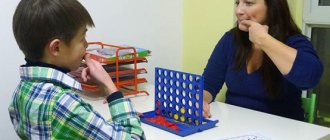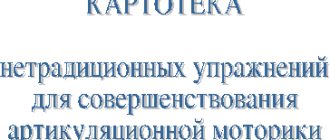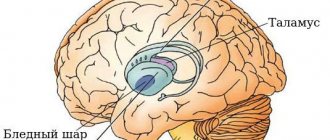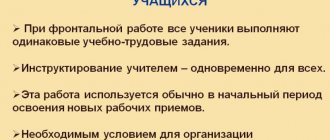For a specialist in speech therapy and defectology, knowledge of pedagogy, medicine and psychology is important. After all, their patients are often preschool children with speech development disorders. Such defects can not only interfere with a child’s communication, but also contribute to the development of psychological barriers and complexes in adulthood.
Adults also turn to speech therapists. The cause may be speech disorders after a serious illness (for example, a stroke), defects missed in childhood, as well as a desire to improve diction and make speech clearer.
Want to help children and adults sound clear and feel confident? Then the work of a speech therapist-defectologist is what you need. All that remains is to write and defend your final qualifying thesis. And in this article we will tell you how to choose topics for dissertations in speech therapy, what to pay attention to when writing, and also give a list of the most relevant topics for dissertations in speech therapy and defectology for 2021.
And to receive the latest news from the world of education, subscribe to our information resource on Telegram. And don’t forget that there are always nice promotions and discounts for our readers.
How to choose topics for dissertations in defectology and speech therapy
Every student dreams of writing their thesis perfectly. How to choose the right topic for a diploma in defectology? Take advantage of our helpful tips and remember six important components:
- Relevance of the topic.
- Reliance on scientific concept.
- Experimental study.
- Personal interest.
- Help from a scientific supervisor.
- Clear structure and competent design.
Choosing a thesis topic is an important step that requires serious consideration.
Relevance of the topic
When choosing a topic for your research, it is important to remember that it must be relevant and address real-life problems faced by speech-language pathologists and their patients. How can I check this? Analyze what topics are discussed at specialized conferences and seminars or what courses are popular on educational platforms and in the speech therapist community.
The relevance of the thesis is stated in the introduction of the thesis. Therefore, it is better to choose a sensitive topic right away than to invent its importance when writing a dissertation in speech therapy.
Reliance on scientific concept
Issues of speech defects have concerned humanity since ancient times. The first mentions of this topic are found in medical (or rather philosophical) treatises already in the 5th century BC. It is not surprising that in speech therapy there are a number of scientific concepts on which all researchers and scientists rely. So, when choosing your thesis topic, you should decide on the direction and use the works of those speech therapists with whose opinions you agree.
If you have your own theory and want to develop it in your thesis, it is worth consulting with your supervisor. He will help evaluate its novelty, point out weaknesses and help build an argument for defense before the commission.
Experimental study
Unlike an essay or course project, a diploma must necessarily contain a practical or experimental part. What data would you like to explore? What sources can you use? What approximate results do you want and can achieve? Answering these questions at the very beginning of work on your final project will allow you to clarify the topic and fully disclose it in your diploma.
Personal interest
Choose the topic that interests you. This is the main advice that is relevant when writing any scientific work. It will be easy for you to conduct research, study mountains of additional literature and defend your thesis project before the examination committee.
By the way! Our readers now have a 10% discount on any type of work.
Help from a supervisor
Asking for help is important, necessary and useful at any stage of working on your graduation project. Especially if you haven’t been able to choose a topic yourself. The teacher will help you find one that suits your strengths, interests and relevance. It will also guide you on what scientific literature and research methods should be used to better explore the topic.
Clear structure and competent design
The success of any thesis depends not only on the correctly chosen topic. The examination committee pays no less attention to the structure of the work and its design. Our blog has a lot of useful material on this topic - read, apply and get high scores.
Despite the fact that there are rules for preparing theses, which are prescribed in GOSTs, many educational institutions have their own requirements. Therefore, always check with the department or supervisor about the standards by which the diploma must be issued.
Features of training speech therapists
Speech therapy is only a general direction in the training of specialists in pedagogical specialization. In fact, there are a lot of varieties and subgroups in this industry: logomassage and logorhythmics (speech therapist-massage therapist), speech therapist-defectologist, speech therapist-psychologist, speech therapist (general specialist), etc.
You can master this profession in literally every third educational institution of professional training, where there is a faculty of pedagogy and psychology, in medical universities and colleges.
Where do you need help from a speech therapist?
In the first years, students master general developmental disciplines that cover basic knowledge in their chosen field, as well as subjects for general development. As a rule, these include in-depth study of biology, anatomy, mathematics, history, a foreign language, etc.
Starting from the 2nd-3rd year, students begin to study the specialized part with an emphasis on such areas as pedagogy, psychology and partly medicine.
Pedagogical disciplines are designed to help the expert establish contact with a child or person, find an approach to him, take into account his abilities and capabilities, teach new reprimanding techniques, etc.
Any difficulties?
Need teacher help?
We are always happy to help you!
master's theses
Psychology allows you to solve a problem through psychosomatics, changing internal receptors that block the correct production of speech, convincing the ward that everything is within his power (scientists have long proven that all problems are in our heads, on a psychological, psycho-emotional level).
The medical part is especially interesting in specific areas of speech therapy, where certain skills are required (for example, massage, articulation, etc.).
Students-speech therapists are required to complete coursework, undergo internships in pedagogical and medical institutions, improving their professional skills.
A qualified and responsible speech therapist will specialize in specific speech disorders and anomalies. Most often, parents are looking for a professional in their field who has helped patients with a specific problem: failure to pronounce letters, stuttering, problems with reading, etc. A speech therapist can work with different deviations, but the greatest effect is most often achieved when he specializes in a narrower part.
Certified specialists successfully work in a variety of institutions: kindergartens, schools, rehabilitation centers, medical institutions, develop private centers, etc.
It is important to note that there are different ways to become a qualified speech therapist: enrolling in a college or university, taking special retraining courses (but these are not suitable only for those who already have a pedagogical education behind them).
Sample topics for dissertation papers in speech therapy 2021
Still haven’t been able to decide on the topic of your thesis? Feel free to choose one from our list:
| Analysis of the features of the development of the grammatical structure of speech in primary schoolchildren with ODD. | Correction of word formation in children of senior preschool age with general speech underdevelopment. | Basic principles of diagnostics and correctional speech therapy work for students with written speech disorders in junior grades of secondary schools. | Work on the morphological correctness of speech of hearing-impaired high school students. | Collaboration between a speech therapist and a teacher to correct spelling errors among students in KRO classes. |
| The influence of the emotional state on speech disorders in children of senior preschool age with mental retardation. | Correction of dysgraphia in school students for children with severe speech impairments due to impaired language analysis and synthesis through a set of exercises. | Features of voice disorders in persons who have suffered acute cerebrovascular accident, traumatic brain injury and other brain diseases. | Work on word combinations as a means of correcting the syntactic structure of speech in primary schoolchildren with speech impairments. | The state and dynamics of higher mental functions in schoolchildren with special needs and mental retardation. |
| Nurturing creative activity in preschool children with special needs development. | Correction of phonemic analysis of word structure in preschool children with FFDD. | Features of speech therapy work to overcome tempo-rhythmic disturbances in children with stuttering. | Work on the development of auditory perception and the formation of pronunciation in hearing-impaired schoolchildren (preschoolers). | Special psychology and pedagogy. Psychological and pedagogical correction of imagination in children of senior preschool age with mental retardation. |
| A differentiated approach to speech therapy work to eliminate dysgraphia in students of KRO classes. | Speech therapy work to overcome disturbances in the formation of sound pronunciation in children with a combination of disorders of the motor and speech spheres in older preschool age. | Features of general fine and articulatory motor skills in preschool children with erased dysarthria and ways to correct their impairments. | Development of dialogic speech in preschool children with speech underdevelopment (younger, middle, older age). | Specifics of diagnosing speech development in children who did not attend a preschool educational institution. |
| Riddle as a didactic tool for developing speech in preschool children. | Speech therapy work on the development of coherent speech using a model of teaching storytelling from a picture to older preschoolers with mental retardation. | Features of understanding verbal vocabulary with abstract meaning by students with speech pathology and development paths. | Development of visual perception in children of senior preschool age with level III OHP. | Comparative analysis of the state of motor and speech motor functions in preschool children with dysarthria. |
| Delayed speech development as a result of pedagogical neglect and its correction in older preschoolers. | Speech therapy work to eliminate sound pronunciation disorders in preschool children in conditions of inclusion. | Peculiarities of manifestations of disorders of language analysis and synthesis in the written speech of third-grade students with mental retardation. | Development of initiative written speech of students in the correctional and developmental education class. | Stimulation of speech development in young children with Down syndrome. |
| Study and correction of psychomotor disorders in children with minimal dysarthric disorders. | Speech therapy work on the formation of prerequisites for the acquisition of spelling skills in primary schoolchildren with ODD. | Features of the development of the sound structure of speech in children from a bilingual family. | Development of communication skills in preschool children in the process of speech therapy work on coherent speech. | Role-playing play as a means of developing the speech of children with special needs development. |
| Study of parental competence in families raising children with speech disorders. | Speech therapy analysis of preschool children’s speech during early learning of the English language. | Features of the state of spatio-temporal representations in first-grade students with level IIΙ OHP. | Development of speech and thinking activity in the process of correctional pedagogical work with preschoolers with special needs development. | Acquisition of word-formation models of adjectives by preschoolers with general speech underdevelopment. |
| The use of dialectical games and exercises in the process of developing phonetic perception in children with phonetic-phonetic speech underdevelopment. | Small genres of folklore as a means of correcting sound pronunciation in older preschool children with dysarthria. | Features of social-speech competence in children with dysarthria of preschool age. | Development of auditory perception of hearing-impaired schoolchildren with speech underdevelopment. | Clarification of the meanings of grammatical forms and understanding of various types of syntactic constructions. |
| Using an individually differentiated approach in the process of improving work with preschoolers who stutter. | Impaired spatial-temporal concepts in primary schoolchildren with reading and writing impairments. | Peculiarities of mastering the program and material in the Russian language by primary school students in secondary schools. | Storytelling based on a picture as a means of developing the speech of older preschoolers. | Formation of dialogical speech in older preschool children with general speech underdevelopment. |
| The use of indirect articulatory gymnastics in the correction of sound pronunciation disorders in older preschool children with dysarthria. | Sound pronunciation disorders and ways to correct them in schoolchildren with mental retardation. | Prevention of dysorthography in primary schoolchildren with hearing impairment during speech therapy classes. | Rehabilitation of patients with alalia after a stroke in a hospital setting. | Formation of knowledge and ideas about the environment as a way to enrich the vocabulary of preschoolers with SEN. |
| The use of fairy tales for the development of coherent speech in children of senior preschool age with special needs development. | Some features of emotional and personal qualities in younger schoolchildren with ODD. | Continuity of correctional and educational tasks in speech therapy work for students with written speech disorders. | Speech development of older preschool children with SEN during didactic games of an environmental nature. | Formation of the communicative function of speech in children of middle preschool age who stutter. |
| Coordinating the work of a speech therapist and teacher on the formation of coherent speech in children with the third level of speech development. | Non-traditional technologies for speech development according to the Maria Montessori system. | Causes of violations of lexical and grammatical structure in preschoolers and schoolchildren. | The role of interaction between a speech therapist and a psychologist, teacher, and defectologist when working with a child with autism. | Formation of control and self-control as a means of correcting sound pronunciation in preschool children. |
| Correctional and speech therapy work on speech development in blind and visually impaired children. | Enriching the vocabulary of preschoolers with speech impairments with sign words. | Prevention of voice disorders in people of speech professions. | The role of speech therapy rhythm in the correction of FFDD in children of senior preschool age. | Formation of the lexical and grammatical structure of speech in children with visual impairments of preschool age. |
| Correctional pedagogical work to prevent reading and writing disorders in older preschoolers with special needs development. | Enriching the vocabulary of older preschoolers with special needs with phraseological units. | Prevention of dysgraphia through the development of spatial orientation in children. | Self-esteem of preschool children with ODD (stuttering) and its influence on the social status of the individual. | Formation of interpersonal relationships with peers in children with special needs of preschool age. |
| Correction of motor disorders in preschool children with dysarthria through speech therapy rhythms. | Teaching how to compose descriptive and narrative stories for children with special needs based on paintings. | Psychological and speech therapy study of stuttering preschool children. | A system of correctional work to overcome violations of oral and written speech among students in KRO classes. | Formation of optical-spatial representations in preparation for writing in preschool children with phonetic-phonemic speech underdevelopment. |
| Correction of violations of the syllabic structure of words in children of senior preschool age with motor alalia. | Optimization of the process of understanding speech messages by visually impaired preschoolers (students). | Ways to influence the development of mental processes in preschool children with speech impairments. | The system of work of a speech therapist with adults who want to correct speech disorders. | Formation of word formation and inflection in children of senior preschool age with general speech underdevelopment and mild pseudobulbar dysarthria. |
| Correction of speech underdevelopment in first-grade students of secondary schools in speech therapy centers. | The main directions of lexical work in school for children with cerebral palsy. | Work of a speech therapist with parents of preschool children with speech disorders. | Tongue twisters as a tool for developing the speech of primary schoolchildren. | Formation of phonemic hearing and perception in children of senior preschool age with FFND. |
Don't have time to write a thesis project yourself? Contact our student service for help. Experts will take into account all the formatting requirements, meet the required deadline, and even help you prepare a speech for your diploma defense.
12831_Karta deyatelnosti.docx
Activity map The project is called: _ _ _ _ _ _ _ _ _ _ _ _ _ _ _ _ _ _ _ _ _ _ _ _ _ _ _ _ _ _ _ _ _ _ _ _ _ _ _ _ _ _ _ _ _ _ _ _ _ _ _ _ _ _ _ _ _ _ _ _ _ _ _ _ _ _ _ _ _ _ _ _ _ _ _ _ _ _ _ _ _ _ _ _ _ _ _ _ _ _ _ _ _ _ _ _ _ _ _ _ _ _ _ _ _ _ _ _ _ _ What I already know: _ _ _ _ _ _ _ _ _ _ _ _ _ _ _ _ _ _ _ _ _ _ _ _ _ _ _ _ _ _ _ _ _ _ _ _ _ _ _ _ _ _ _ _ _ _ _ _ _ _ _ _ _ _ _ _ _ _ _ _ _ _ _ _ _ _ _ _ _ _ _ _ _ _ _ _ _ _ _ _ _ _ _ _ _ _ _ _ _ _ _ _ _ _ _ _ _ _ _ _ _ _ _ _ _ _ _ _ _ _ _ _ _ _ _ _ What I want to know_ _ _ _ _ _ _ _ _ _ _ _ _ _ _ _ _ _ _ _ _ _ _ _ _ _ _ _ _ _ _ _ _ _ _ _ _ _ _ _ _ _ _ _ _ _ _ _ _ _ _ _ _ _ _ _ _ _ _ _ _ _ _ _ _ _ _ _ _ _ _ _ _ _ _ _ _ _ _ _ _ _ _ _ _ _ _ _ _ _ _ _ _ _ _ _ _ _ _ _ _ _ _ _ _ _ _ _ _ _ _ _ _ _ _ _ _ _ _ _ My sources of information: _ _ _ _ _ _ _ _ _ _ _ _ _ _ _ _ _ _ _ _ _ _ _ _ _ _ _ _ _ _ _ _ _ _ _ _ _ _ _ _ _ _ _ _ _ _ _ _ _ _ _ _ _ _ _ _ _ _ _ _ _ _ _ _ _ _ _ _ _ _ _ _ _ _ _ _ _ _ _ _ _ _ _ _ _ _ _ _ _ _ _ _ _ _ _ _ _ _ _ _ _ _ _ _ _ _ _ _ _ _ _ _ _ _ _ _ _ _ _ _ _ _ _ _ I will ask for help from: _ _ _ _ _ _ _ _ _ _ _ _ _ _ _ _ _ _ _ _ _ _ _ _ _ _ _ _ _ _ _ _ _ _ _ _ _ _ _ _ _ _ _ _ _ _ _ _ _ _ _ _ _ _ _ _ _ _ _ _ _ _ _ _ _ _ _ _ _ _ _ _ _ _ _ _ _ _ _ _ _ _ _ _ _ _ _ _ _ _ _ _ _ _ _ _ _ _ _ _ _ _ _ _ _ _ _ _ _ _ _ _ _ _ _ _ _ _ _ _ Project form- _ _ _ _ _ _ _ _ _ _ _ _ _ _ _ _ _ _ _ _ _ _ _ _ _ _ _ _ _ _ _ _ _ _ _ _ _ _ _ _ _ _ _ _ _ _ _ _ _ _ _ _ _ _ _ _ _ _ _ _ I will need: _ _ _ _ _ _ _ _ _ _ _ _ _ _ _ _ _ _ _ _ _ _ _ _ _ _ _ _ _ _ _ _ _ _ _ _ _ _ _ _ _ _ _ _ _ _ _ _ _ _ _ _ _ _ _ _ _ _ _ _ _ _ _ _ _ _ _ _ _ _ _ _ _ _ _ _ _ _ _ _ _ _ _ _ _ _ _ _ _ _ _ _ _ _ _ _ _ _ _ _ _ _ _ _ _ _ _ _ _ _ _ _ _ _ _ _ _ _ _ _ _ _ _ _ _ _ _ _ _ _ _ _ _ _ _ _ _ _ _ _ _ _ _ _ _ _ _ _ _ _ _ _ _ _ _ _ _ _ _ _ _ _ _ _ _ _ _ _ _ _ _ _ _ _ _ _ _ _ _ _ _ _ _ _ _ _ I learned: _ _ _ _ _ _ _ _ _ _ _ _ _ _ _ _ _ _ _ _ _ _ _ _ _ _ _ _ _ _ _ _ _ _ _ _ _ _ _ _ _ _ _ _ _ _ _ _ _ _ _ _ _ _ _ _ _ _ _ _ _ _ _ _ _ _ _ _ _ _ _ _ _ _ _ _ _ _ _ _ _ _ _ _ _ _ _ _ _ _ _ _ _ _ _ _ _ _ _ _ _ _ _ _ _ _ _ _ _ _ Activity map The project is called: _ _ _ _ _ _ _ _ _ _ _ _ _ _ _ _ _ _ _ _ _ _ _ _ _ _ _ _ _ _ _ _ _ _ _ _ _ _ _ _ _ _ _ _ _ _ _ _ _ _ _ _ _ _ _ _ _ _ _ _ _ _ _ _ _ _ _ _ _ _ _ _ _ _ _ _ _ _ _ _ _ _ _ _ _ _ _ _ _ _ _ _ _ _ _ _ _ _ _ _ _ _ _ _ _ _ _ _ _ What I already know: _ _ _ _ _ _ _ _ _ _ _ _ _ _ _ _ _ _ _ _ _ _ _ _ _ _ _ _ _ _ _ _ _ _ _ _ _ _ _ _ _ _ _ _ _ _ _ _ _ _ _ _ _ _ _ _ _ _ _ _ _ _ _ _ _ _ _ _ _ _ _ _ _ _ _ _ _ _ _ _ _ _ _ _ _ _ _ _ _ _ _ _ _ _ _ _ _ _ _ _ _ _ _ _ _ _ _ _ _ _ _ _ _ _ _ What am I I want to know_ _ _ _ _ _ _ _ _ _ _ _ _ _ _ _ _ _ _ _ _ _ _ _ _ _ _ _ _ _ _ _ _ _ _ _ _ _ _ _ _ _ _ _ _ _ _ _ _ _ _ _ _ _ _ _ _ _ _ _ _ _ _ _ _ _ _ _ _ _ _ _ _ _ _ _ _ _ _ _ _ _ _ _ _ _ _ _ _ _ _ _ _ _ _ _ _ _ _ _ _ _ _ _ _ _ _ _ _ _ _ _ _ _ _ _ My sources of information: _ _ _ _ _ _ _ _ _ _ _ _ _ _ _ _ _ _ _ _ _ _ _ _ _ _ _ _ _ _ _ _ _ _ _ _ _ _ _ _ _ _ _ _ _ _ _ _ _ _ _ _ _ _ _ _ _ _ _ _ _ _ _ _ _ _ _ _ _ _ _ _ _ _ _ _ _ _ _ _ _ _ _ _ _ _ _ _ _ _ _ _ _ _ _ _ _ _ _ _ _ _ _ _ _ _ _ _ _ I will ask for help from: _ _ _ _ _ _ _ _ _ _ _ _ _ _ _ _ _ _ _ _ _ _ _ _ _ _ _ _ _ _ _ _ _ _ _ _ _ _ _ _ _ _ _ _ _ _ _ _ _ _ _ _ _ _ _ _ _ _ _ _ _ _ _ _ _ _ _ _ _ _ _ _ _ _ _ _ _ _ _ _ _ _ _ _ _ _ _ _ _ _ _ _ _ _ _ _ _ _ _ _ _ _ _ _ _ _ _ _ _ _ _ _ _ _ _ _ _ _ _ _ Project form- _ _ _ _ _ _ _ _ _ _ _ _ _ _ _ _ _ _ _ _ _ _ _ _ _ _ _ _ _ _ _ _ _ _ _ _ _ _ _ _ _ _ _ _ _ _ _ _ _ _ _ _ _ _ _ _ _ _ _ I will need: _ _ _ _ _ _ _ _ _ _ _ _ _ _ _ _ _ _ _ _ _ _ _ _ _ _ _ _ _ _ _ _ _ _ _ _ _ _ _ _ _ _ _ _ _ _ _ _ _ _ _ _ _ _ _ _ _ _ _ _ _ _ _ _ _ _ _ _ _ _ _ _ _ _ _ _ _ _ _ _ _ _ _ _ _ _ _ _ _ _ _ _ _ _ _ _ _ _ _ _ _ _ _ _ _ _ _ _ _ _ _ _ _ _ _ _ _ _ _ _ _ _ _ _ _ _ _ _ _ _ _ _ _ _ _ _ _ _ _ _ _ _ _ _ _ _ _ _ _ _ _ _ _ _ _ _ _ _ _ _ _ _ _ _ _ _ _ _ _ I learned: _ _ _ _ _ _ _ _ _ _ _ _ _ _ _ _ _ _ _ _ _ _ _ _ _ _ _ _ _ _ _ _ _ _ _ _ _ _ _ _ _ _ _ _ _ _ _ _ _ _ _ _ _ _ _ _ _ _ _ _ _ _ _ _ _ _ _ _ _ _ _ _ _ _ _ _ _ _ _ _ _ _ _ _ _ _ _ _ _ _ _ _ _ _ _ _ _ _ _ _ _ _ _ _ _ _ _ _ _ _





